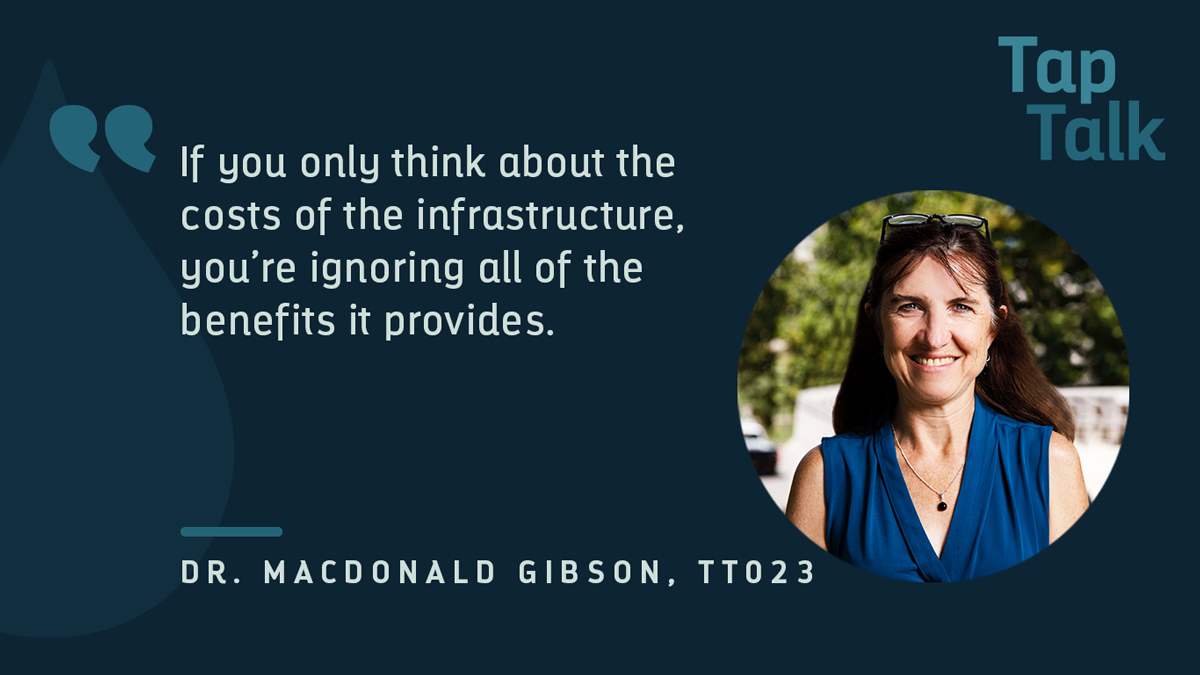In this episode we’re chatting with Dr. Jackie MacDonald Gibson about her work at the intersection of environmental health and public policy. We focus on the disparities that private well users in disadvantaged communities face, even when there is a public water system in close proximity.
Topics Discussed
-
- Meet Dr. Jackie MacDonald Gibson | LinkedIn
- Dr. Gibson’s Water Heroes: David Caldwell and Robert Campbell
- Experiences working in areas without safe water access
- Communicating public responsibility for health protection
- Dr. Gibson’s Research Website
Go Further
You’re invited to discuss the episode in our LinkedIn Group. If you decide to share on Twitter, please use the hashtag #TapTalkPodcast. And, of course, make sure to subscribe in Apple Podcasts or your favorite podcast app.
About the Guest
Dr. Jacqueline MacDonald Gibson is Chair of the Department of Environmental and Occupational Health at Indiana University, Bloomington. Previously, she was Professor of Environmental Sciences and Engineering at the Gillings School of Global Public Health, University of North Carolina at Chapel Hill. She conducts research to quantify environmental impacts on population health in order to support environmental policy decisions. Her recent research has focused on assessing racial disparities in access to treated municipal drinking water in North Carolina and the impacts of those disparities on health, a project initiated at the request of the former North Carolina Director of Public Health. Her prior research has included projects to advise the City of Raleigh on the health impacts of alternative designs for urban neighborhoods and to advise the Environment Agency—Abu Dhabi on how to prioritize environmental policy initiatives to maximize public health benefits. Her recent theoretical work focuses on using machine-learning methods to uncover complex interactions between environmental factors and public health. Prior to joining the University of North Carolina faculty, Dr. MacDonald Gibson served as Associate Director of the National Research Council’s Water Science and Technology Board and as Senior Engineer at the RAND Corporation, a public policy think tank. She received a BA in mathematics from Bryn Mawr College, an MS in environmental science in civil engineering from the Department of Civil and Environmental Engineering at the University of Illinois at Urbana-Champaign, a PhD in engineering and public policy from Carnegie Mellon University, and a PhD in civil and environmental engineering from Carnegie Mellon University. Her doctoral studies were funded by a National Science Foundation Graduate Research Fellowship. She has three sons and two stepsons and enjoys running marathons as a hobby.

